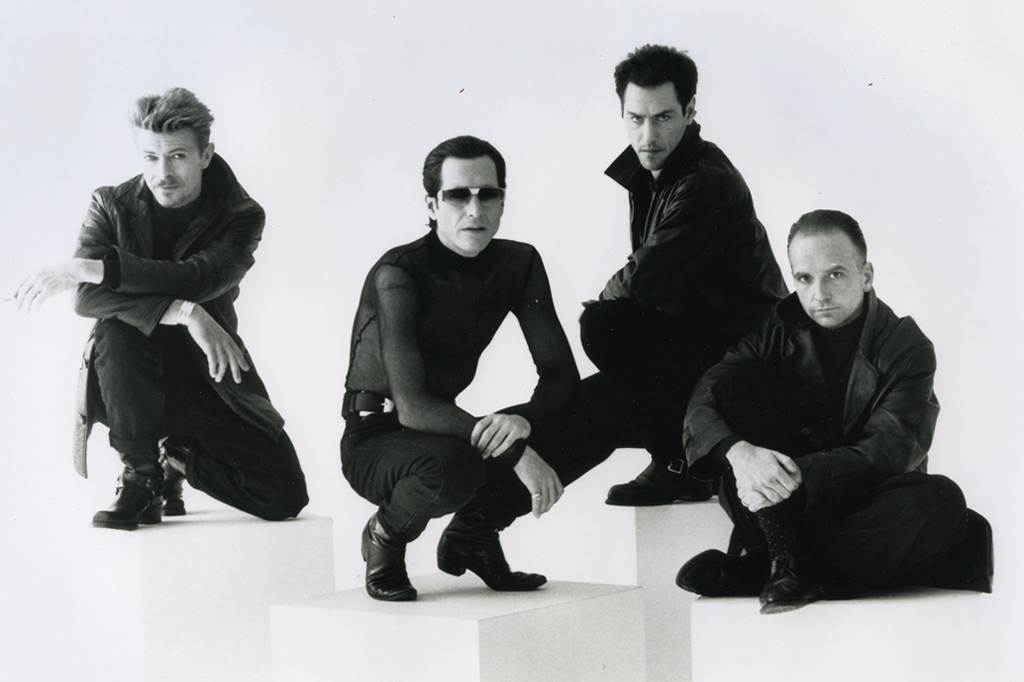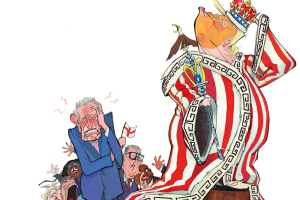I’m generally not a fan of New Year’s resolutions, but one occurred to me recently as the younger members of my family were blasting out a patchy David Bowie playlist: Stand Up Against Revisionism. It’s harder than ever these days not to succumb to printing the myth — reality can be so so-so — but critics have a duty to keep a clear head while others are losing theirs. Even around the dinner table on New Year’s Day.
Bowie would have been seventy-six this week; he was born on January 8 1947, and died two days after his 69th birthday in 2016. He’s not getting any less popular in posthumous old age. In fact, business is booming. At the end of last year, the latest hefty Bowie box set arrived, titled Divine Symmetry and covering the Hunky Dory era. It came hard on the heels of Brett Morgan’s dazzling yet humorlessly reverential Moonage Daydream documentary. Since Bowie’s publishing catalog was sold to Warner Chappell by his estate last January for $250 million, his songs have started popping up in adverts; how odd and slightly depressing to hear the funky desolation of “Sound and Vision” selling bags of nails for a hardware chain.
There will no doubt be more of the same this year. It’s an extremely efficient process of curation which has left Bowie — an artist of origami complexity — smoothed out like expensive gift wrap. For younger generations, including my own children, Bowie has simply become synonymous with genius, an artist who had a preternatural gift for mapping out the future; which is to say, their present. A man who exuded sexual intrigue, effortless cool and impeccable artistic taste.
Anybody who lived through Bowie’s later 1980s and early 1990s — or indeed possesses more than a passing awareness of his 1960s — will find this blanket deification a little hard to countenance. For the record, I am a massive fan, particularly of the remarkable records he made between 1974 and 1980, as well as The Buddha of Suburbia, 1.Outside, Heathen and his masterly final album, Blackstar.
I know my subject. I paid my dues. I fell for Bowie at the age of eleven, in 1985, slap bang in the period widely recognized as his doldrums: getting into Bowie in the mid-1980s was akin to discovering Orson Welles during the period he was taping commercials for Paul Masson Wines. I weathered the ignominy of trying desperately to like his 1987 nadir Never Let Me Down, and the blokey “call me Dave” downscaling farrago of Tin Machine. I failed, as did most people.
Because what the myth often fails to print these days is that, around this time, Bowie was close to a laughing stock. The influential weekly music papers begged him to pack it in. He couldn’t buy a good review. He punted his wares on Wogan and TFI Friday like all the other poor “pick-me” pop stars. He was resolutely Earthbound and frequently embarrassing. Remember Bowie kneeling to give the Lord’s Prayer at the Freddie Mercury Tribute concert? Remember the video for the plodding “Day In, Day Out,” which depicted him rollerblading through some MTV version of Skid Row, lamenting the drug blight in America? Remember all those awful movies? I do.
Yet I have lived long enough to witness the age of revisionism. Most of the dodgier chapters have been more or less excised from Bowie lore. There have been attempts to rehabilitate his weakest work through remixes and recontextualizing, but the underlying premise — that it must have been good, because it was Bowie — is a misguided one. His status is enriched by an acknowledgment of his hit and miss creativity and the recognition that he was frequently ridiculous — and seen as such — for long stretches of his career. You might even love him for it. After all, faith never tested isn’t faith at all. One of Bowie’s strengths was that he was prepared to appear deeply silly (Kate Bush, likewise, is never afraid to do something daft in the name of her art). A further strength is that he was prepared to travel far outside his comfort zone and fail spectacularly. At other times he was simply lazy or obvious. That’s OK, too.
This posthumous leveling out of Bowie into default ‘icon’ status makes him far less interesting. It has the counterproductive effect of making his many creative peaks seem less extraordinary. So, the next time some young gun tells you the Thin White Duke was a genius, say: “Maybe. Sometimes.” Then play them “The Laughing Gnome,” dig out the Glass Spider DVD, and tell them you preferred it when we were allowed to laugh at Bowie as well as love him.
This article was originally published in The Spectator’s UK magazine. Subscribe to the World edition here.

























